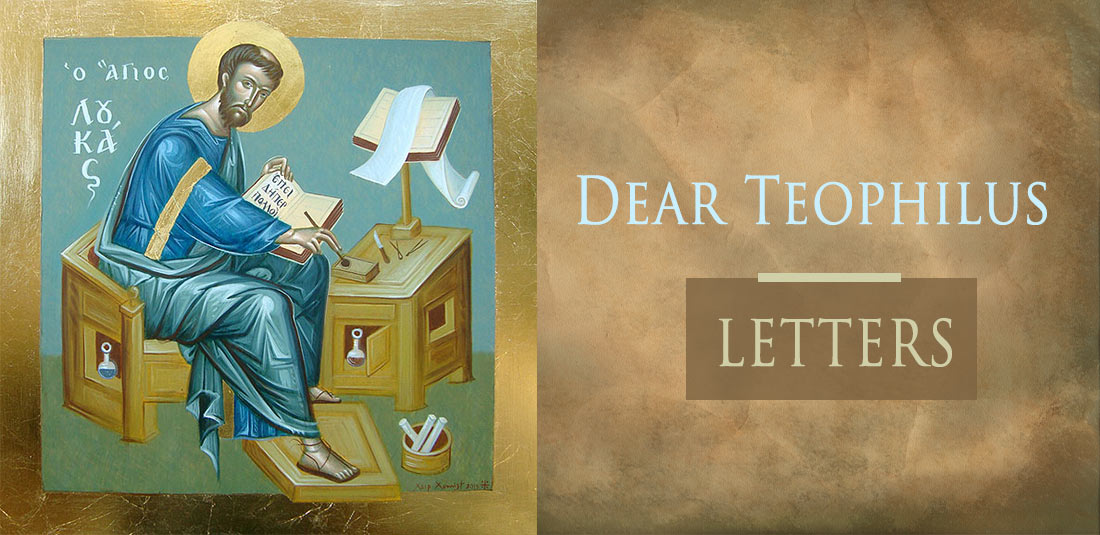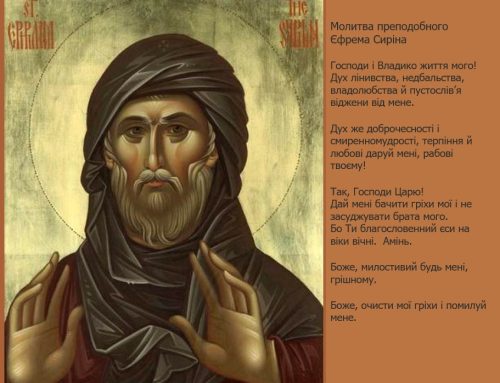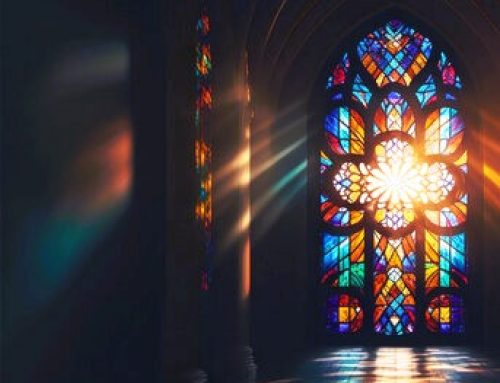Dear Theophilus , (Letter 85. )
I want to continue where we left off in the last letter.
The question that has troubled humanity for eons is the question of man’s mortality. What is the eventual fate of man? Humanity has tried to answer this question in a variety of ways.
One answer has been to find ‘immortality’ through members of one’s own family and it is through them that we continue to live. Another attempt to answer the challenge of mortality is to aspire for fame through statues, through an impact on history. But this too is fleeting and of no real consequence to man. This is an ‘ersatz’ immortality which will also pass away. In other words, man has no permanence in himself and must seek it not in his family or in fame but somewhere where a new type of life if given to man. He must find it in another.
What Christianity teaches is that I am truly what I was intended to be in God’s thought. It is His thought that causes me to be and this is the best answer to our search for immortality – to somehow be united with God and thereby escape annihilation. We are under the thrall of bios and what bios does is to lead us to the final end in irreversible death. In our faith, bios yields to zoe which is the definitive life which knows no bounds which are called death.
We are taught that He who has love for all, has established immortality for all. And the proof of this is that Christ has risen from the dead showing that God’s love is more powerful than death. Indeed, if he had not risen from the dead, then bios and thanatos still rule the world.
There are so many misconceptions about the Resurrection that it would be beneficial for us to stop and take account of what this term means.
The first thing to note is that there is a sense of the disciples being lost as to what is actually happening in their encounters with Christ. They are dealing with a new reality and it is difficult, and inappropriate, to use the terms of the reality in which bios rules. The disciples recognize Christ and yet are uncertain; he ‘passes’ through walls and locked doors and disappears. He is the same and yet, in some fashion, he is very different. This is beyond rationality but, it is not irrational. We must continually try to dig deeper to ascertain what it is that the writers are saying.
There was also a competition between the Hebraic and Greek concepts of survival of death. The Greeks saw man as fundamentally consisting of two parts – one was the body and this perishes, whereas the other is the soul and that is what survives. This seems to be a very popular view today because it seems to make so much sense. For the Hebrews, the main view was that man is a unity. The word soul, in the scriptures, simply means person, not some spiritualized component of man.
Notice that scriptures speak of the awakening of the dead – there is no mention of the awakening of the body. Resurrection refers to the salvation of one, undivided man and did not refer to some idea of the restoration of the physical body. What was stressed was the resurrection of the person, albeit in a transformed manner. It is not surprising when Paul spoke to the Greeks about resurrection, they had no idea what he was talking about. For them, this was a totally foreign concept.
I want to draw your attention to the term – awakening. Man’s immortality is not an intrinsic power residing in man but it consists of being drawn into dialogue with God. When you are awakened, someone has to do the awakening. Man’s salvation is a ‘dialogic’ immortality. He is resurrected and continues to live having escaped the shadow of death through a dialogue that he has with God and this is referred to as an awakening.
We are to begin this dialogue now and not wait for our earthly biological death. This dialogue has the name of prayer and that is why prayer is so important for Christians because it is a beginning, it is the laying down of a basis for our very salvation and redemption, for something very important in the post-death life. He who prays now knows God will raise him and he will die no more.
But there is another important factor in the resurrection and that is that fellowship is constitutive of resurrection. We are not raised as isolated monads – we are raised in communion with our fellow travelers in this world. Our loved ones will be an intrinsic component of our lives and they, in some mysterious fashion, will contribute to our resurrection and complete it.
The Old Testament leaves unanswered man’s final fate. It is only with Christianity that we start to see what man truly is and what his final fate will be. There is an interesting but ironic statement made by Pilate in the Gospel of St. John. Ecce homo he says – here is the man. It is Christ who shows us what it means to be human – Christ is the true man Pilate says unwittingly. And with the coming of the true man, the God-man dialogue has entered into a new phase.
Just a few clarifying statements about the role of the body in the Resurrection. Paul clearly states that flesh and blood cannot inherit the kingdom nor does the perishable inherit the imperishable. The word used for body is soma but soma can also mean the self. The term sarx refers to the biological body of chemicals, the body that eventually dies. The body, soma, refers to the self which has become a transphysical reality and this is what the Resurrection deals with. All talk of which molecules will make up our resurrection bodies is just nonsensical talk; this is not what Paul writes about in his letters.
We are awakened by God through God addressing us and this is what occurs in the Resurrection. But there is no individual resurrection per se. The future of each of us will be fulfilled when all of humanity has been resurrected and we then become one with each other. This resurrection, to repeat myself, is not some distant event, it starts here and now for each of us, but it is completed at the ‘end of time’. In the Resurrection we meet Christ and through him, we meet God and through Christ we also meet our fellow humans. Before we go to a fuller understanding what this means, several points have to be addressed.
You may object by saying it is fine for those who have met Christ and who encounter him again when they die, but what of those countless millions who have not met him in this world? Are they not being put outside the realm of the resurrection and thereby condemned? In our resurrection, we are awakened through being addressed by God through Christ. But this capacity to be saved – the potential capacity to dialogue with Christ is present in every single human being whether it is initiated on Earth or not. This capacity is an inherent characteristic of what it means to be human. During our bios, during our years on Earth, we may not have activated this capacity but it does not mean that it is absent in each and every one of us. This ‘dialogic’ immortality is not exclusionary to those who are not members of Christianity – it is something that is an innately human characteristic and defines what in fact it means to be human. We, therefore, cannot say that those who have not heard of Christ, for whatever reason, are lost.
But this also must be stressed. Without Christ we would be in a literal dead end because we cannot dialogue directly with the Godhead. We dialogue through our intermediary who is Christ. We would not be redeemed, we would not be saved and our potential for immortality would remain inactivated and we would perish and thanatos would continue to reign supreme without the coming of Christ.
Sometimes what is presented in our society is the image of a vengeful God who blocks man’s entry into bliss by judging man and condemning man. This is a distortion of what our faith teaches us. Heaven was not barred by God on the condition that we behave in a certain way. In a sense, heaven came into existence, into being as a reality, through the confluence of God and man, in Christ, beyond the limits of bios. And this, of course, happened with Christ’s Incarnation and Resurrection. A new dimension of being has been created. Remember that heaven is a gift which we are invited to receive; hell is something that we give ourselves through a total isolation from others and from God. Judgement is not merely or even principally condemnation. Judgement is the acknowledgement of man’s responsibility which is grounded in the freedom that God respects.
We already have an inkling of this unity that comes through the Resurrection and this unity can be experienced now by each and every one of us. But, more in the next letter.
Sincerely,
Bar-Abbas.






